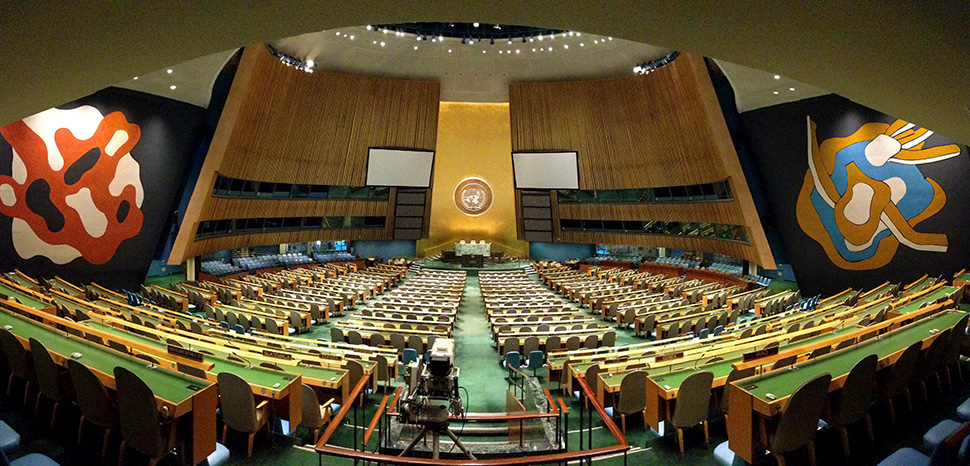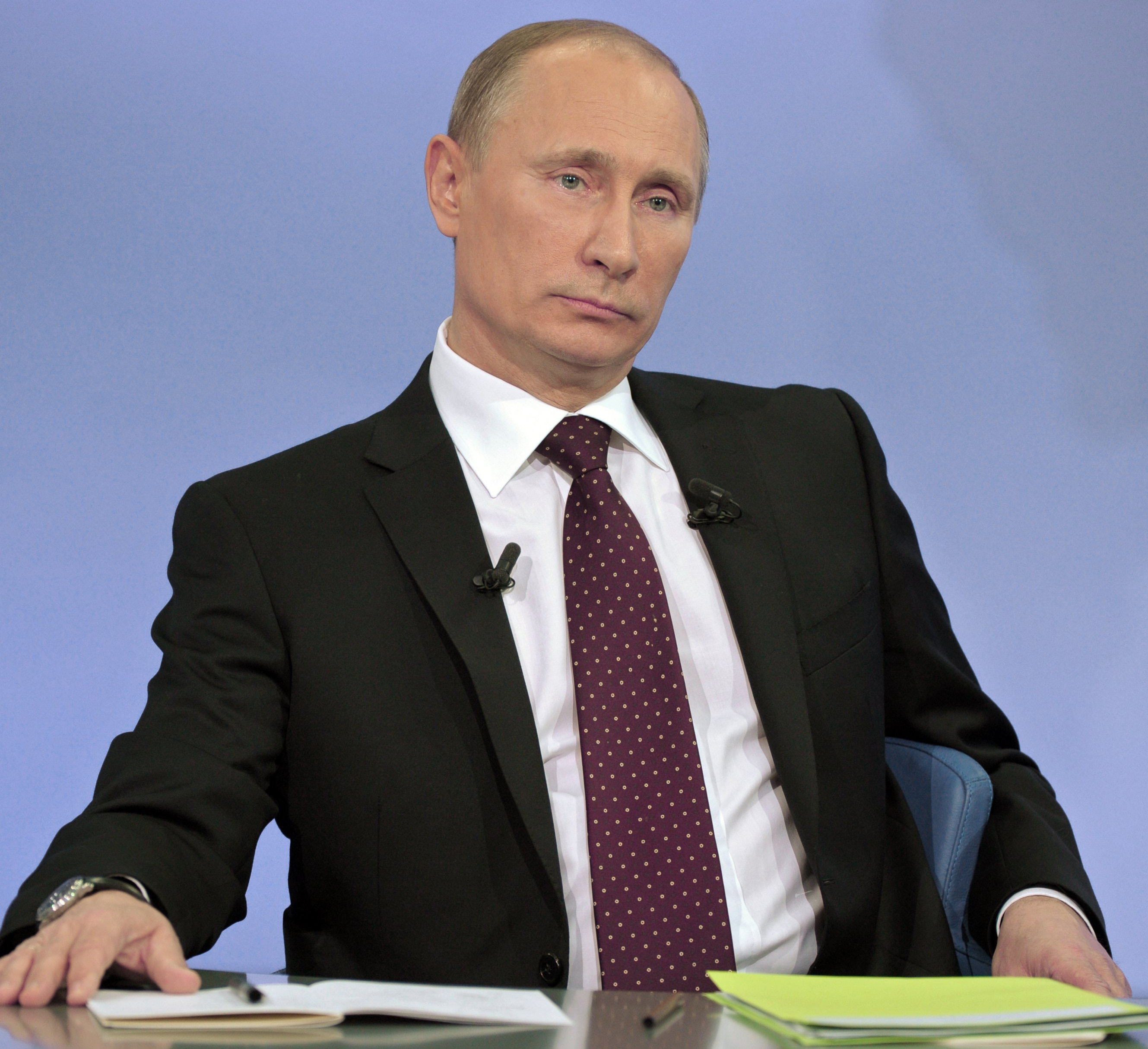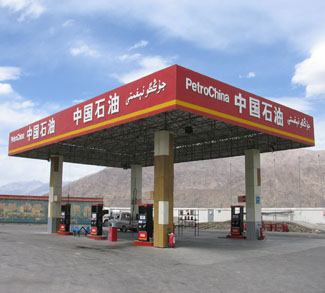At a time when there is renewed scholarly attention in International Relations (IR) to small states and their circumstances, the publication in June 2023 of a case study-informed edited volume titled The Success of Small States in International Relations is a welcome contribution. According to its editor and renowned small states scholar Professor Godfrey Baldacchino, this timely and impressive book showcases “thirteen episodes in modern history where small states” carried the day in international politics. In this telling, which pushes back on academic caricatures of small states in the discipline, an emphasis is placed not on “strategies of resistance … but strategies of success.”
For the Caribbean Community (CARICOM), a bloc of small states, international organizations (IOs) are fundamental to strategies of success regarding the conduct of its international relations in a context where the prevailing (international) politics often prove far costlier for such states. Accordingly, IOs feature prominently in the calculations of the bloc’s foreign policy establishment, i.e. The Council for Foreign and Community Relations (COFCOR).
Small States, System Let Down and the Bottom Line
Unlike major powers and, to a lesser degree, middle powers, small states—which are typologically vague in the discipline of IR—have not traditionally held the scholarly spotlight.
The prevailing tendency of “problem-solving” qua neorealist IR scholarship is to narrowly view small states through the prism of their materially weaker positions relative to large states, making associated determinations about their lot in the anarchic international system. As one scholar argues, small states do “not have a foreign policy; they merely have a policy of existence.” Notwithstanding all of the loose talk of the marginal role of such states—e.g. CARICOM member states—in international affairs, as this article points out, the picture is much more complex.
A more nuanced reading of what obtains in that regard suggests that they are adept at tapping into IOs as force multipliers vis-à-vis their international cooperation, a driving force behind their development. (For IOs, too, benefits arise from the nexus between themselves and small states’ foreign policy praxis.) Moreover, for CARICOM member states, IOs are the difference makers, not least because these international actors better position them to exert influence over global debates—as some of the bloc’s “latest diplomatic victories” have shown.
In this sense, CARICOM member states have a keen interest in disrupting conventional understandings of who should lead globally and in what aspects of global governance they should stake a claim to leadership, with a view to challenging associated shibboleths.
In doing so, they want to jolt (Western) hands in global power centres. The rationale is that, amid the enormous complexity of conflicting interests and competing agendas in the global governance space, by leading from the front the development-related interests of the 14 sovereign Small Island and Low-lying Coastal Developing States (SIDS) comprising the CARICOM bloc will get a fair(er) shake from the said system.
This in a context where CARICOM member states’ experiences with climate action and the international financial system are a reminder that, for them, the status quo ante has fallen short. What is more, for now, CARICOM member states’ development is veering off course.
CARICOM Has Laid New IO-related Plans with Immediate Significance
As the CARICOM bloc is driven to step up at this time to assume global leadership responsibilities, the task of upgrading the IO-related pivot of its diplomatic playbook has taken on new urgency.
This helps explain why regional foreign policymakers publicly allude to “the vital importance of candidatures to CARICOM’s foreign policy and the need for coordination to ensure that CARICOM candidatures are successful.” Specifically, at the most recent meeting of CARICOM foreign ministers, a decision was taken to “establish a Technical Working Group to undertake a comprehensive review of the Principles to Guide the Identification of CARICOM Candidates for International Positions … [and that] [t]he Group is to prepare a report for [a] Special Meeting of the COFCOR in September 2023.”
Nonetheless, placing CARICOM representatives in leadership and senior posts in international organizations has been a long-standing feature of CARICOM foreign policy. Indeed, the item of CARICOM candidacies for international and regional posts has been on the COFCOR agenda from day one. From time to time, foreign ministers have made requests to have the relevant guiding principles reviewed, as was decisively done recently.
This lends itself to system-level change, which challenges conventional thinking and, by extension, established players in international politics.
In short, if the goal is to pursue “self-help strategies” and bring about a paradigm shift as regards solutions to thorny issues like climate action and reform of the international financial system, for instance, anything less won’t do much good.
CARICOM is looking at the big picture, putting a premium on global leadership on select issues of foreign policy significance.
CARICOM Is Holding Its Own
Recently, attention was drawn to five prominent international-level instances where CARICOM sought to leverage IOs to get ahead in global leadership. The cases—which provide a window into how such states were up to the task of global leadership and the degree to which they are invested in multilateralism—are illustrated below.

Five CARICOM-related Cases of Leading from the Front in Global Governance
The thinking behind the bloc’s diplomatic positioning as it pertains to the aforementioned cases of global leadership is instructive. Notably, for the Anglophone members of CARICOM, who gained and sought to reinforce independence from the 1960s to the 1980s, an overriding foreign policy concern is their economic qua developmental advancement. In their emphasis on this dimension of foreign policy, wider security concerns also hold broad applicability. (Looking to history, then, those interests have primarily been of an economic and political nature.) It bears repeating that, as “system-ineffectual states,” CARICOM member states gear their foreign policy toward harnessing processes and institutions of multilateralism to project their voices in and to expand their foreign policy outcomes vis-à-vis international politics.
With the 78th session of the United Nations General Assembly (UNGA) commencing in less than a month, when the international community will be focused on the high-level UNGA General Debate (along with the High-level Week 2023), CARICOM’s foreign policy cognoscenti is weighing how best to promote and protect the bloc’s interests. With its leaders out front, as expected, this regional grouping will underline its unwavering commitment to international cooperation and multilateralism. But even as this diplomatic stance resonates with them—given the existential challenges they face and the stakes involved—they are probably more of the mind to reaffirm calls for Western governments in particular to hit the reset button on Global North approaches to those very debates.
Topping the list is climate change, which is no less challenging an issue on the global agenda than reform of the international financial system. As already intimated, global (in)action in this respect can make or break the developmental prospects of CARICOM member states.
To be sure, much like any other complex set of policy issues in the international development space which are regarded as being portents of such states’ underdevelopment, these top-tier CARICOM foreign policy matters are not mutually exclusive.
The sooner Global North and Global South countries reach a consensus on the nexus between the two and the requisite solutions-driven action, the sooner developing countries—like those of CARICOM—can get the help they so desperately need to turnaround their developmental prospects.
Along the way, in an effort to help move Global South perspectives to the front burner, CARICOM must be afforded the opportunity to continue to meaningfully lay the groundwork accordingly.
A recently-held, UN-facilitated regional forum that St. Vincent and the Grenadines hosted and that is integral to UN-level efforts to successfully bring off next year the fourth International Conference on Small Island Developing States did just that, having deepened understanding of and policy-related positioning on several interlinked matters of concern to SIDS. The Bridgetown Initiative and the Multidimensional Vulnerability Index, which both enjoy strong support among CARICOM’s leaders, attracted special attention in that vein.
The meeting adopted an outcome document, which outlines “comprehensive recommendations and strategic action plans specifically tailored for the Caribbean region.” To be clear, this outcome is pivotal for the fourth International Conference on Small Island Developing States. This planned high-profile meeting is geared towards evaluating progress made over the last decade in the implementation of the Accelerated Modalities of Action (SAMOA) Pathway, in which CARICOM remains integrally involved and which is a foci of the international community’s resolve to support the cause of SIDS.
No less importantly, that outcome also illustrates the strength of the CARICOM bloc’s leadership, which will be on display inter alia at the UNGA General Debate and the bevy of associated meetings, including bilateral meetings which will take place in the margins.
In sum, CARICOM—which has a special focus on amplifying its members’ voices and advancing concerted attention to and action on their interests in international affairs via “enhanced co-ordination of Member States’ foreign and [foreign] economic policies”—is harnessing IOs to good effect. This is paying off, as CARICOM’s stake in continued SIDS-related advocacy demonstrates. Consequentially, from this effort sprang a certitude that such states—as evidenced by their ability “to advance global climate policy in defining ways”—have the wherewithal to lead on the international stage.
Concluding Discussion and Outlook
This article, whose small states-related agential narrative dovetails with that of Baldacchino et al. under reference, has presented an IO-hinged explanation of some of CARICOM’s highly visible diplomatic successes. The aforesaid book by Baldacchino et al. is an outgrowth, on the one hand, of the current period of intellectual ferment in IR (at a meta-theoretical and theory-building level) and, on the other hand, the broader and long-running agency-structure debate in social theory. In either case, by and large, its contributors are united by the belief in and research traditions of an actor-specific focus. On the IR side of the ledger, taking into consideration Baldacchino’s dismissal of the mindset that ‘small’ is obviously and naturally weak and inconsequential, the collaborators on the book seemingly find much in common with the intellectual standpoint of interpretivists or reflectivists. On the social theory side of things, which some IR scholars treat with in a foreign policy context, the volume’s analytical approach takes seriously the salience of revisioning of small states’ agency in international politics.
The empirical contribution of this article coheres with the intellectual framing of the book in question by Baldacchino et al., integrating concern for the need to better understand the IO-driven nature of CARICOM foreign policy into a growing wave of small states oriented, agential IR scholarly research. One limitation of this work is that it does not focus on the fact that CARICOM’s foreign policy-related IO approach has its limits, not least because regional states do not necessarily define their national interests concordantly with each other. A case in point is that regarding resolutions in the Organization of American States pertaining to Venezuela’s political instability, CARICOM member states “have been divided.” Furthermore, one would do well to ask: Whither CARICOM states’ interests in a new age of great-power geopolitics? This matter has important implications for CARICOM’s foreign policy-related IO approach.
The stark reality of the foregoing, CARICOM-related case also needs to be brought to light. All this suggests even more demands will be placed on the Foreign and Community Relations Directorate of the Guyana-headquartered CARICOM Secretariat—“the principal administrative organ of the Community”—making it crucially important that (in light of its relatively small institutional footprint) this directorate be adequately resourced. This will send the strongest possible signal that at a time when the CARICOM bloc is leaning into a renewed foreign policy focus, the Secretariat is primed to energise its support of those efforts.
That said, matching these demands with the imperative of appropriately financing/configuring the CARICOM Secretariat and efforts to secure the political will to deepen regional integration are proverbial sticking points. While both are essential to fully achieving this more assertive foreign policy approach, they are elusive. (Whether this reality will be reversed any time soon remains to be seen.) Taken together, and not lost on CARICOM insiders, they are key to the CARICOM bloc finding potent solutions to the increasingly challenging nature of foreign policymaking in contemporary international politics.
Future work should pay close attention to these issues, and more. While research efforts into the ‘black box’ of CARICOM’s foreign policymaking have received their due, a new generation of IR scholars would do well to unpack anew the manifold issues arising in the context of today’s international politics.
The views expressed in this article are those of the author and do not reflect the official policy or position of the UWI or Geopoliticalmonitor.com. The author would like to thank Ambassador Patrick I. Gomes, Ambassador Colin Granderson and Ambassador David Hales for their very helpful comments on earlier drafts of this article. Special thanks to Ambassador Godfrey Baldacchino for his insightful feedback.




